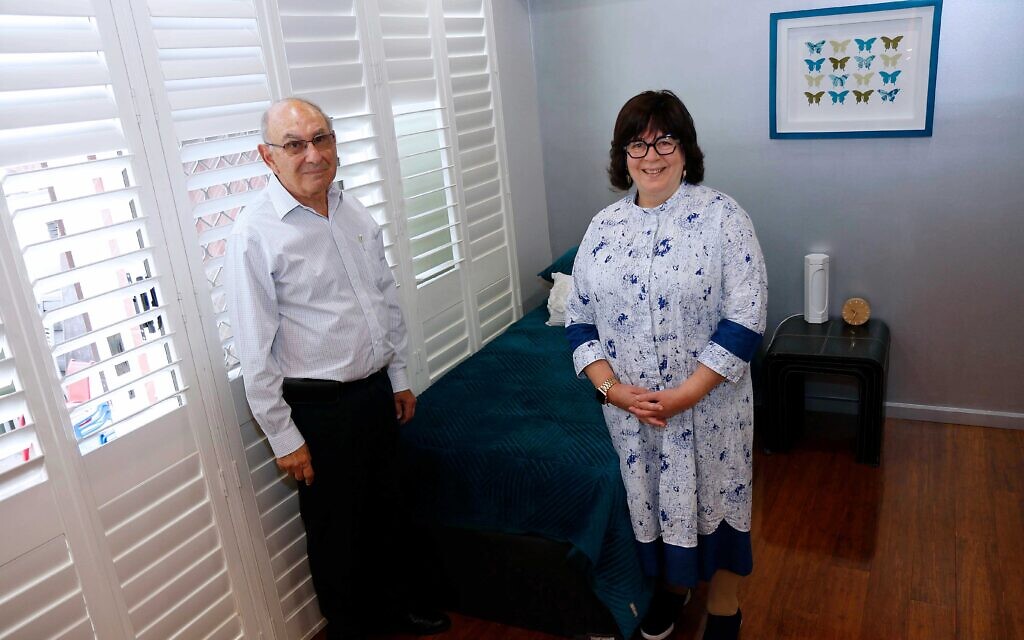New mothers are ‘not given enough care’
Noting women who experience uncomplicated births are sent home as early as six hours after delivery in the public system, Raizel Fogel recognised a dire need for post-natal support

“WOMEN are suffering emotionally,” says Raizel Fogel – but she is doing something about it.
While she may be best known in the community as one half of the couple that owns kosher catering business Eshel, Fogel has dedicated a whole part of her life to caring for women in the days immediately after giving birth following their discharge from hospital.
And as a doula for almost 20 years, the mother of six, grandmother of 44 and great-grandmother of four, knows a thing or two.
Noting that women who experience uncomplicated births are now sent home as early as six hours after delivery in the public system, Fogel recognised a dire need to provide post-natal support – and she does so from her own pocket.
Nine years ago, Fogel added a bathroom to an unused bedroom in her home to host new mums in need of respite. In 2019, she created a second space, erecting a purpose-built room with a bed and bathroom adjoining her house.
During their stay, mums are provided with three nutritious meals a day, while Fogel also takes care of laundry, allowing the mother time and space to rest with her baby before returning home. In that period, the new mums have free run of the house, with the length of their stay ranging from three days to two weeks.
Should breastfeeding issues arise during that time, Fogel arranges for trained consultants to assist – also on a complimentary basis.
“I really love it though,” Fogel enthuses, continuing, “It gives me so much pleasure and joy.”
“You just see, every day, a bit more, the colour returns to their skin, and their bodies begin to mend. They are just so relaxed as they can follow the schedule of the baby without having to follow the schedule of their other children, or the demands of cooking and cleaning.”
Many of the women who stay with Fogel are members of the Adass community, as is Fogel, while some of the mums are from the broader Jewish community.
“Having children is a big part of our religion and we like having big families, but I don’t think people are supported enough through the journey to their birth and post-natal period. They are not given enough care.”
Professor Samuel Menahem has known Fogel for many years. Calling the project “remarkable”, the Emeritus Head Paediatric Cardiology and Fetal Cardiac Unit at Monash Medical Centre thought the initiative worthy of investigation, seeking to examine the impact of the service on the women who had received Fogel’s care.
One of Menahem’s Melbourne University research students, Romina Withanage, was keen to delve into the project. She documented the experiences of 12 new mothers who used the volunteer service. Her findings, overseen by Menahem and Monash Institute for Health and Clinical Education director Professor Margaret Hay, were published last year.
One mother commented in the study, “I felt like in order to be able to take care of my family, I need to be able to heal and take care of myself. And just like … to be little bit strong enough to go back home.”
Withanage also captured the experience of one woman who stayed with Fogel while emotionally and physically recovering from a miscarriage.
Another woman spoke of the importance of feeling supported, reflecting that it was “wonderful” to have Fogel, “a kind, nurturing person around”.
Speaking with The AJN, Withanage said she observes that the physical and psychological trauma associated with birth may cause some mothers to be less capable of managing their own wellbeing, and that of their child, potentially instilling a lack of confidence in their role as a mother.
“Many of the existing postpartum services are offered to women with psychotic illness or substantial psychological distress but a mother who is well – like the ones who stayed with Raizel – will likely have no support at all in our current healthcare system,” she said.
With the study finding the service exceeded the expectations of the new mums, Fogel and Menahem are now seeking government funding in order to expand the initiative into a pilot program, making it available to women of the wider community.
While they submitted a proposal to the state Health Ministry last year, progress stalled with the pandemic. But local politicians are working to put the item back on the agenda, with federal MP for Macnamara Josh Burns committing to working with Fogel and Menahem “to find ways to support more families during this important time in their lives”.
Meanwhile, Member for Caulfield David Southwick put forward an adjournment matter to Victorian Health Minister Martin Foley last Thursday, urging him to consider the formalised proposal for state government funding in order “to establish a pilot mother-infant friendly residential unit to service the local Caulfield community … and consider providing additional supports to establish similar facilities across Victoria”.
Fogel emphasises, “Because of the support the new mothers receive while they are here, they leave feeling much more empowered, and with greater trust of themselves.
“They know they can do it, and they can do it well.”
Get The AJN Newsletter by email and never miss our top stories Free Sign Up

comments